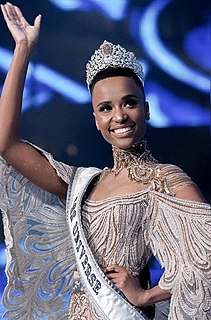A Quote by Laura Thielen
It deals with so many different aspects of living in South Africa the racial issues of South Africans and Asians with poverty with the reality of children orphaned by AIDS the transition from village life to city life.
Related Quotes
And now South Africa has finally woken up and it is doing great things. And if South Africa becomes the template to what AIDS is in the sub-Saharan continent, then all the other countries are going to follow suit. And Michel Sidibe, who spoke at the breakfast meeting this morning, was saying that there is so much hope for Africa now that South Africa has got its house in order.
When President Mbeki said, if you get AIDS, you can have a shower and it goes away. It's like, oh, come on. Or it's caused by poverty. We faced those kind of issues. But now, with the new regime, they have really woken up, paid attention. And when South Africa speaks, then the whole of Africa will listen. And I have got great hopes for that.
I have dear friends in South Carolina, folks who made my life there wonderful and meaningful. Two of my children were born there. South Carolina's governor awarded me the highest award for the arts in the state. I was inducted into the South Carolina Academy of Authors. I have lived and worked among the folks in Sumter, South Carolina, for so many years. South Carolina has been home, and to be honest, it was easier for me to define myself as a South Carolinian than even as an American.
As we mourn President Mandela’s passing we must ask ourselves the fundamental question - what shall we do to respond to the tasks of building a democratic, non-racial, non-sexist and prosperous South Africa, a people-centred society free of hunger, poverty, disease and inequality, as well as Africa’s renaissance, to whose attainment President Nelson Mandela dedicated his whole life?
































